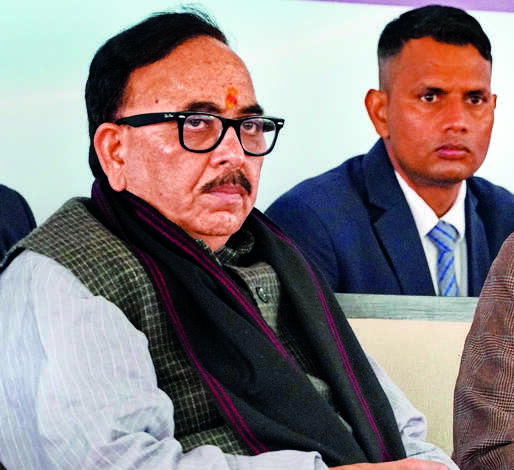
India can emerge as a major global hub for crash testing of vehicles with the duty exemption for vehicles imported for testing in the budget, heavy industries minister Mahendra Nath Pandey has said. In an interview to ET’s Twesh Mishra and Deepshikha Sikarwar, he also said the government has enough funds for all segments of vehicles under the second leg of Faster Adoption and Manufacturing of (Hybrid &) Electric Vehicles in India (FAME-India) scheme and that the government will take action against errant EV companies that have misused subsidies. Edited excerpts:
Has this budget done enough to kick-start private investment?
There is a massive push towards capex in this budget. This is the first time that ₹10 lakh crore outlay has been made for capital expenditure in the budget. This is a huge message for the private sector and to push the country ahead on growth path. The government has made a holistic assessment and several measures have been undertaken to boost investments.
Your ministry recently launched PLI performance-linked incentive (PLI) scheme for auto sector. How is the scheme faring?
The scheme for automobile manufacturing that also includes original equipment manufacturers (OEMs) and components has seen very good response from the industry. There is a possibility of expanding it further. We had expected an investment of ₹40,000 crore. We have selected 18 companies under OEMs and 67 for components which have committed over ₹74,000 crore of investment. Under the PLI for advanced chemistry cell (ACC) battery storage we have had claimants for setting up 128 GW of manufacturing capacity. Of this, we eventually allocated 30 GW capacity for support under the scheme. The beneficiaries under this programme are planning to set up around 75 GW of incremental battery manufacturing capacity in the country. This will substitute imports from China, Malaysia and some western countries.
How do you view the execution of the Faster Adoption and Manufacturing of Electric Vehicles (FAME) scheme?
FAME scheme has been a massive success. The allocation for the scheme has been hiked from ₹2,908 crore in FY23 to ₹5,172 crore for FY24. Under the second phase of FAME scheme, 850,000 electric vehicles have been supported, resulting in saving of about 229 million litres of fuel and reduction of 332 million kilogrammes of CO2 as on February 1, 2023.
This subsidy is targeted at commercial vehicles in the three- and four-wheeler segment, focusing on buses and taxi vehicles. The sale of electric two-wheelers increased from 38,000 in 2020-21 to 209,000 in 2021-22, and has crossed 438,000 in 2022-23 (till January 5).
Seeing the success of the scheme, two more steps – reducing custom duty on EV batteries and giving economic support for scrapping old vehicles – have been taken in the budget.
There have been concerns about misuse of subsidies under the FAME scheme by EV manufacturers…
We have given strict instructions for investigating the matter. The probe is underway. Steps have been taken after the preliminary probe. Two companies have been suspended from the scheme. The subsidy amount payable to other companies has been withheld pending investigation. We will take all the steps required after the outcome of the probe.
There is also a view that buses and commercial vehicles would corner the entire subsidy allocated under the FAME scheme, leaving negligible funds for other EV segments?
The subsidy is not going to run out. The push on buses is more because this government priorities the common folk and low-to-medium income earners. The emphasis was on large metro cities till now. We have the budgetary support and will expand to other cities.
India has been looking to emerge as a vehicle testing hub. Will the tax sop in the budget will facilitate this?
There was interest from countries like Japan, Korea, Vietnam, Italy, and our neighbouring nations for availing these facilities. A hindrance was 252% levy on vehicles imported for crash testing. This budget has reduced the duty on vehicles brought in for this purpose to zero as that vehicle will be destroyed during tests. India can now become the sixth global hub for vehicle testing. Naturally, if vehicles come here for testing, the domestic industry will also get a boost.
Also Read:
